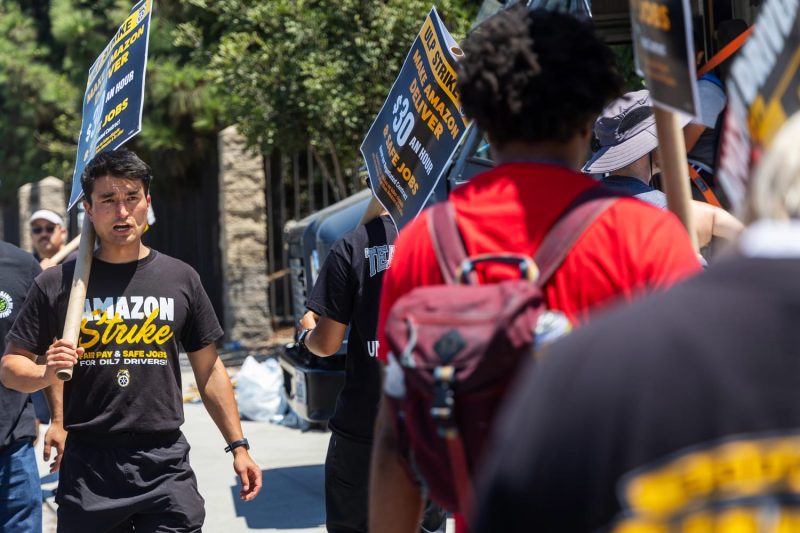Amazon Hikes Wages for Contract Delivery Drivers as Union Pressures Grow
Amazon recently announced an increase in wages for contract delivery drivers, in response to the mounting pressure from unions advocating for fair compensation and better working conditions in the gig economy. This move by the tech giant comes amid a broader debate surrounding the treatment of gig workers, particularly those employed in the logistics sector.
The decision to raise wages for delivery drivers reflects a recognition of the essential role they play in Amazon’s operations. As the demand for fast and efficient delivery services continues to rise, ensuring that drivers are fairly compensated is not only a matter of social responsibility but also a strategic business move. By investing in the well-being of their drivers, Amazon is not only improving workplace morale but also boosting the overall efficiency and reliability of its delivery network.
The push for higher wages for gig workers is part of a larger movement aimed at addressing the growing disparities in the labor market. With the rise of platform-based employment, more workers are finding themselves in precarious situations with little job security and inadequate compensation. Unions and advocacy groups have been at the forefront of advocating for better pay, benefits, and working conditions for gig workers, and Amazon’s decision to raise wages for delivery drivers is a response to these demands.
In addition to increasing wages, Amazon has also taken steps to improve the overall working conditions for its delivery drivers. This includes providing access to benefits such as healthcare, paid time off, and other perks traditionally associated with full-time employment. By offering these incentives, Amazon is not only attracting and retaining top talent but also setting a new standard for other companies in the gig economy to follow.
Despite these positive steps, challenges remain in ensuring that gig workers are adequately protected and compensated for their labor. The gig economy is known for its lack of regulation and oversight, which can leave workers vulnerable to exploitation and abuse. Unions and advocacy groups play a crucial role in holding companies accountable and pushing for legislative changes that safeguard the rights of gig workers.
In conclusion, Amazon’s decision to raise wages for contract delivery drivers is a step in the right direction towards creating a more equitable and sustainable gig economy. By recognizing the value of their workers and investing in their well-being, Amazon is setting an example for other companies to follow. However, more needs to be done to address the broader issues facing gig workers and ensure that they are afforded the protections and benefits they deserve. Only through collective action and advocacy can we create a fairer and more just labor market for all.

